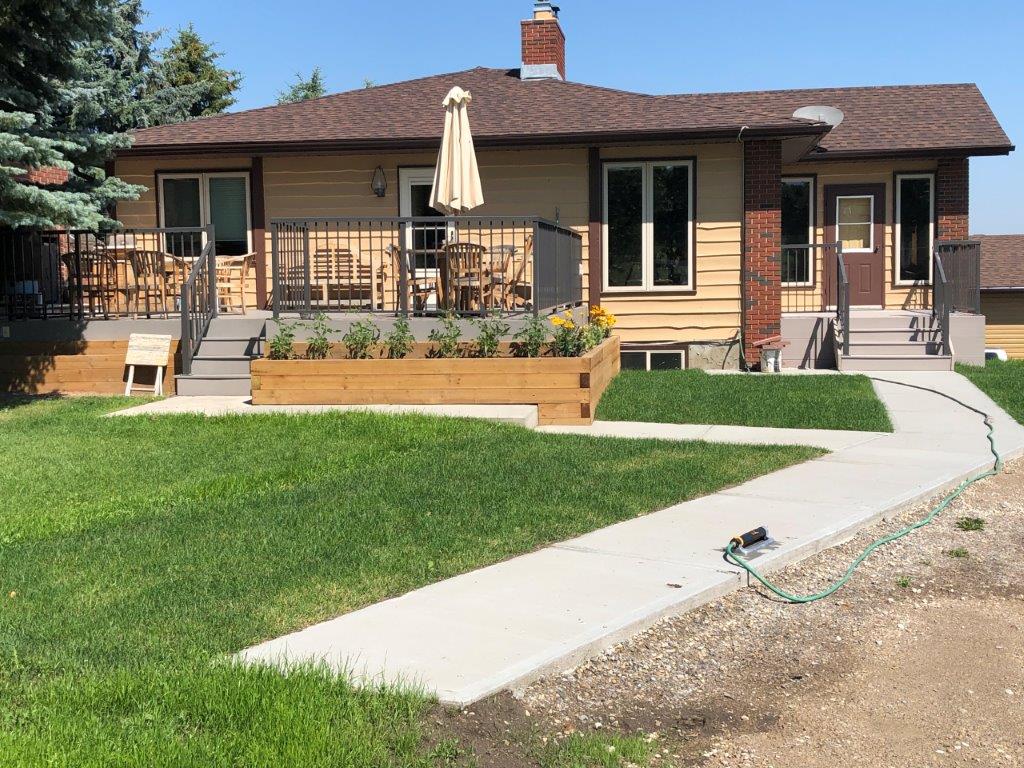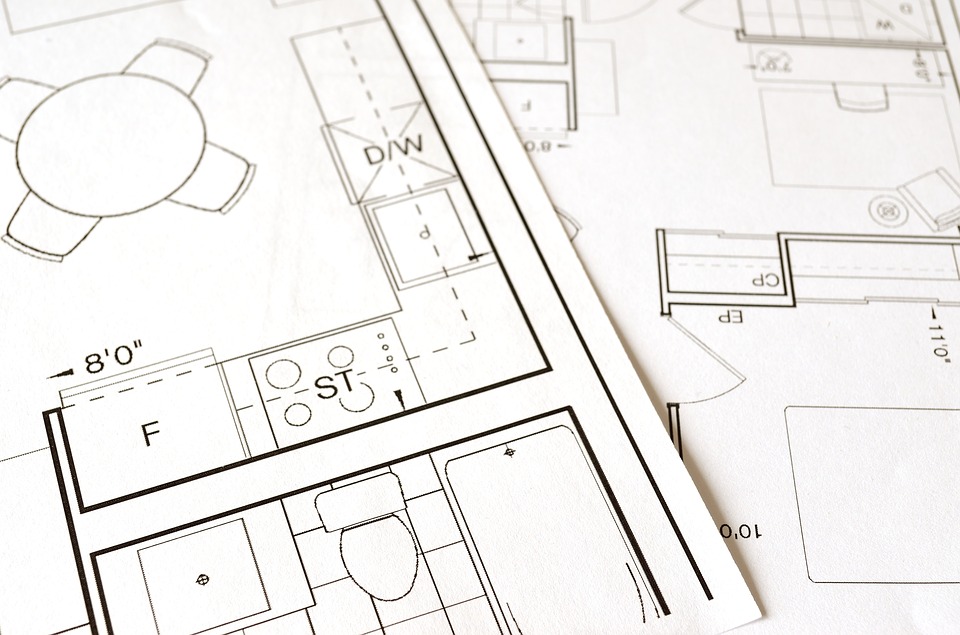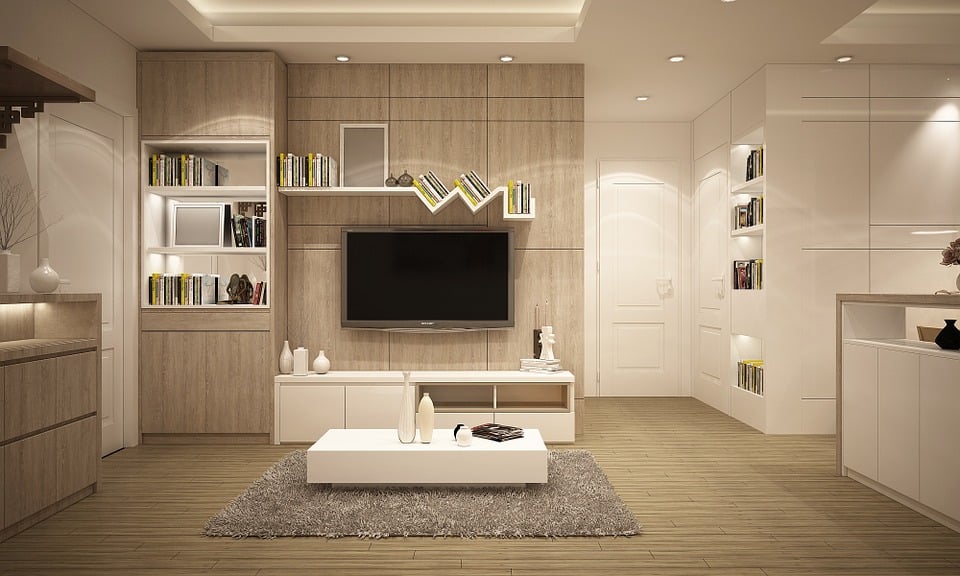Benefits of Hiring a Contractor to Renovate Your Staircase

Renovating your staircase can breathe new life into your home, adding both aesthetic appeal and functionality. Some of the key decisions you’ll face during this process is selecting the right type of railing and flooring for your staircase. In this article, we’ll explore the various types of railings and flooring available for your staircase renovation, detailing the benefits along with important safety features.
Staircase Renovations
Types of Railings
Wooden Railings
Pros: Wooden railings exude warmth and classic charm, complementing various interior styles. They are customizable in terms of design, allowing for intricate carvings and decorative details. Wood can be stained or painted to match your desired color palette.
Cons: Maintenance is key with wooden railings, as they require periodic sanding, staining, or painting to prevent wear and tear. Over time, wood may also be susceptible to warping and cracking.
Metal Railings
Pros: Metal railings, including wrought iron, steel, and aluminum, offer a modern and sleek appearance. They are highly durable, resistant to weather and impact, and require minimal maintenance. Various design options, such as ornate patterns or minimalist lines, are available.
Cons: Metal railings might feel cold or industrial to some homeowners. In humid environments, they may be prone to rust if not properly treated.
Glass Railings
Pros: Glass railings create an open and airy feel, allowing for uninterrupted views and enhanced natural light flow. They offer a contemporary look and are easy to clean. Glass railings are available in framed or frameless designs.
Cons: Glass railings can be challenging to maintain in terms of keeping them free from smudges and fingerprints. Safety concerns include potential breakage and the need to ensure the glass meets necessary safety standards.
Cable Railings
Pros: Cable railings provide a minimalist and unobtrusive appearance, making them ideal for modern and outdoor settings. They offer excellent visibility and can be paired with various materials such as wood or metal.
Cons: Installation of cable railings might require more precision and attention to detail. Regular tensioning and maintenance are needed to ensure cables remain taut and secure.
Safety Features
When renovating your staircase, prioritizing safety is of utmost importance. Here are some safety features to consider when choosing your railing type:
- Baluster Spacing: The gap between balusters or spindles should be small enough to prevent children or pets from getting through. Building codes often dictate these measurements.
- Handrail Height: The handrail should be positioned at a comfortable height for users to grip while ascending or descending the stairs.
- Secure Installation: Proper installation of railings is essential. Make sure your contractor follows industry guidelines and local building codes.
- Non-Slip Surfaces: Choosing materials that offer a non-slip surface, such as textured metal or wood, can enhance safety, especially in high-traffic areas.
- Rounded Edges: Avoid sharp edges on railing components to reduce the risk of injury.
- Glass Safety: If opting for glass railings, consider tempered or laminated glass, which is designed to break into small, less hazardous pieces if shattered.
Flooring Options for Stairwells
The staircase is a central element of your home, connecting different levels and adding to its architectural beauty. When renovating your stairwell, selecting the right flooring is crucial to achieving a cohesive and aesthetically pleasing look. Here are the benefits of various types of stairwell flooring available:
Hardwood Flooring Benefits
Elegance: Hardwood adds a timeless and elegant touch to your stairwell, enhancing its overall aesthetics.
Durability: Hardwood is robust and wear-resistant, making it ideal for high-traffic areas like staircases.
Variety: A wide range of wood species, finishes, and stains allow you to customize the flooring to match your interior design.
Warmth: The natural warmth of hardwood creates a welcoming ambiance in your home.
Laminate Flooring Benefits
Affordability: Laminate flooring provides a cost-effective alternative to hardwood while mimicking its appearance.
Versatility: Laminate is available in various designs, including wood, stone, and tile patterns, offering versatile options for your stairwell.
Durability: Laminate is resistant to scratches, stains, and fading, ensuring a long-lasting and low-maintenance solution.
Easy Installation: Laminate planks often feature a click-and-lock system, simplifying installation.
Carpeting Benefits
Comfort: Carpeting adds a soft and cushioned feel underfoot, making your staircase comfortable to traverse.
Noise Reduction: Carpeting absorbs sound, minimizing noise transmission between floors.
Safety: Carpeting provides an added layer of traction, reducing the risk of slipping on the stairs.
Insulation: Carpeting helps insulate your home, maintaining a consistent temperature and potentially lowering energy bills.
Tile Flooring Benefits
Design Versatility: Tiles come in a plethora of colors, patterns, and textures, allowing you to create intricate designs or achieve a sleek, modern look.
Water Resistance: Tile flooring is moisture-resistant, making it suitable for staircases leading to damp areas like basements.
Durability: Tiles are highly durable, withstanding heavy foot traffic and wear.
Easy Maintenance: Tiles are easy to clean and require minimal maintenance, perfect for busy households.
Benefits of Hiring a Contractor for Flooring Installation
When envisioning the transformation of your home, few elements hold as much potential as the flooring. It is the foundation upon which your entire living space is built, setting the stage for both comfort and style. As you embark on the journey of selecting the perfect flooring material, another critical consideration comes into play—installation. While DIY enthusiasts might be tempted to take on the task themselves, there’s a compelling case for entrusting this pivotal aspect to the expertise of a professional contractor. Here are the benefits of hiring a contractor for flooring installation:
- Expertise and Experience: Professional contractors possess the knowledge and experience required to install different types of flooring correctly. They understand the intricacies of each material and can ensure precise installation.
- Customization and Design: A skilled contractor can assist in designing a unique and visually appealing stairwell, combining flooring materials, patterns, and colors for a stunning effect.
- Proper Preparation: Contractors will properly prepare the subfloor, ensuring a smooth and stable surface for the new flooring. This step is crucial to prevent issues such as unevenness or creaking.
- Tools and Equipment: Installing stairwell flooring often requires specialized tools and equipment. Contractors come equipped with the necessary tools to ensure a professional and efficient installation.
- Time and Efficiency: Professional contractors work efficiently, minimizing disruptions to your daily life. They can complete the installation in a timely manner, allowing you to enjoy your renovated stairwell sooner.
- Warranty and Guarantee: Reputable contractors often provide warranties or guarantees for their work, giving you peace of mind that any potential issues will be addressed.
- Safety and Compliance: Contractors are familiar with local building codes and safety regulations, ensuring that your stairwell flooring is installed in a way that meets all safety standards.
Selecting the right flooring for your stairwell can significantly enhance its aesthetics, functionality, and overall value. Whether you opt for the elegance of hardwood, the affordability of laminate, the comfort of carpeting, or the versatility of tiles.
When it comes to renovating your staircase with a new railing, it can significantly transform the look and feel of your home while enhancing safety. Each railing type has its own set of advantages and disadvantages, catering to different preferences and requirements.
A contractor’s expertise, experience, and attention to detail will ensure that your stairwell looks stunning and stands the test of time, providing you with a beautiful and safe staircase for years to come. Consulting with a professional contractor can guide you through the process and ensure your staircase renovation project is a success.













